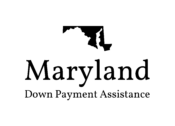





Grants
Grants are funds provided by government agencies, non-profit organizations, or even employers that do not require repayment. They are essentially gifts to help cover part or all of the down payment.
Eligibility criteria vary, but often depend on factors such as income, first-time homebuyer status, and home purchase price.
Forgivable Loans
Forgivable loans are loans that are forgiven over time, typically if the homeowner meets certain conditions, such as staying in the home for a specified period. This type of assistance can be an effective way to reduce the financial burden on the homebuyer.
Eligibility criteria often include income limits, homebuyer education, and compliance with residency requirements.
Employer Assistance
Some employers offer down payment assistance or homebuyer programs as part of their employee benefits. This may include financial support or educational resources to help employees navigate the homebuying process.
Typically, eligibility is tied to being an employee of the sponsoring organization.
Loans
Some down payment assistance programs offer loans to homebuyers, often with favorable terms such as low-interest rates or deferred payments. These loans may or may not require repayment, depending on specific program requirements.
Eligibility criteria may include income limits, credit score requirements, and participation in homebuyer education programs.
Tax Credits
Tax credits provide a reduction in the amount of income tax owed by the homebuyer. In some cases, states or local governments offer tax credits as an incentive for homeownership.
Eligibility criteria may include income limits and the purchase of a home within a specific geographic area.
Silent Second Mortgages
Silent second mortgages are secondary loans that do not require monthly payments. They only become due when the primary mortgage is paid off, the home is sold, or other specified conditions are met.
Eligibility criteria may include income limits, first-time homebuyer status, and adherence to program requirements.
